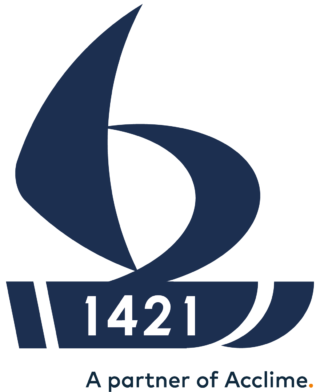8 Examples and Common Mistakes of Setting Up a Chinese Business Entity

8 Examples and Common Mistakes of Setting Up a Chinese Business Entity
Stories are numerous about telling how Western companies conquered the Chinese market at lightning speed, seemingly without any hiccups. But what can you, as a reader, learn from such stories? We believe a moment of crisis and problems are the real source of lessons that can be learned. One of our most read articles was “8 Common Mistakes When Setting up Business in China”. This article was shared often, but still we get asked the same questions. Therefore we have compiled 8 examples of lessons learned the hard way with companies that set up a WFOE. A WFOE, which stands for Wholly Foreign Owned Enterprise and known by most as a WOFE, is the limited liability enterprise for foreign companies. Having seen many WFOE’s being set up, we saw common mistakes which later created problems for the companies and its stakeholders. Without further ado here are 8 examples of mistakes to share with you:
Case 1: Registered Capital
Case 1 wanted to set up their Chinese entity using the smallest amount for the registered capital allowed. Even though advised to reserve registered capital for 3 years overhead costs or until the company expects to run breaks even, they still went ahead investing the lowest possible amount. The company ran into problems when their costs turned out to be higher than expected, causing them to run out of cash. Getting more cash from their head office abroad needed approval of different governmental departments, which took a while. Before the cash arrived, the company was already in very heavy financial weather.
Case 2: Business Scope
Operating outside a company’s business scope is one of the most dangerous things a company can do. Case 2 did not adapt their business scope to include their future plans. When the new business was being performed the profits naturally went up. When a company fails to comply with the business scope, they become liable for a fine. Such a fine can reach the equivalent of 1 years’ revenue. This was exactly what happened to the company and all time, energy and money of the previous year was lost.
Case 3: Address of Company
When registering your WFOE there are multiple requirements for the address where your business will be registered. These can be found on our dedicated WFOE page. This particular anecdote is about an American company that wanted to set up in a residential building. The landlord promised this was possible at the address. Determining your company’s address is one of the first steps when registering the WFOE. When the company was almost finished setting up, the local government saw that the registered address was not legal. The company lost their lease and had to restart the process of registering. The amount of time lost was the biggest cost for the new entity.
Case 4: Appointing a random Legal Representative
The legal representative is the crucial person in the WFOE. This person is appointed by law as the responsible person for the company’s operations. Case 4 appointed a legal representative whom was not originally employed by the mother company. During operations they hired a low budget accountant to do their bookkeeping (see Case 5 later on). Once Case 4 got into an argument and received fines in China, they seized operations without closing the WFOE. The legal representative was still responsible for the fines and the whole ordeal got very complicated for the legal representative.
Another mistake that often happens is to appoint a legal representative whom has too much power. Once the HQ, outside of China, gets into a (small) dispute with their appointed legal representative employee in China, they might find out that the employee has too much power to be stopped. It is not unheard of that the legal representative gives itself a nice “yearly bonus” at this point and nothing can be done because the legal rep has all the power to do this.
Case 5: Penny Wise Pound Foolish
We have companies asking us to support them to set-up their business in China, but who feel later that a low budget local agency is a better fit. These same companies quite regularly come back to us, because at a later point they find out there were mistakes in the company documents. This is due to the tendency of local agents not being bothered by seeing if the WFOE’s goals lines up with their clients’ wishes. For people with limited China experience working with a local agent is a challenge. The challenge lies in is not knowing how to deal the culture & communication differences. If you find a local agent who you trust, we can of course only tell about these cases as a fair warning.
Case 6: No Market Insights
Over the years this has been of our most often given advice: know what to expect. Our clients agree that is very important to know the market before setting up in their country, but often disregard this themselves when they come to China. Case 6 heard through the grapevine that Beijing would be a great place to start, before they contacted us. After setting up the Chinese branch for Case 6, they found out that their market lies in Shanghai. The distance of more than 1000 km would make doing business for them very hard and they had to set up a new subsidiary.
Case 7: Not Sticking to the Labor Law
Just like in most of the developed Western world, China has binding labor laws. It is important to know that these laws are in place to protect the interests of both employer and employee. Having set up a WFOE is not enough just to hire employees. Labor contracts should be signed for each employee hired. It is advised that the company drafts all of the labor contracts with a lawyer. Case 7 asked us for advice on improving their business in China. After a company scan, Case 7 got pointed out that a number of employees were not even officially on the payroll. This resulted in their staff not feeling involved in the company and even worse: the company being at risk for fines. Shortly after solving this problem the company got warned by us, this issue was resolved and luckily enough Case 7 was not fined.
Case 8: Unclear Phrasing of the Articles of Associations
The Articles of Associations (AOA) is one of the key documents during WFOE set-up. The document regulates the structure, business scope and framework of the WFOE. Having vaguely phrased their taxation and insurance chapter, Case 8 did not realize their Chinese branch fell in a different tax bracket. After paying too little VAT over their yearly revenues, the company was given a hefty fine.
Unfortunately our work sometimes exists out of crisis management, solving problems for companies who ran into the Chinese market without obtaining any advice or help. These companies, accustomed to the business culture of the West, had to run into these problems before realizing they needed help. Make sure you prepare yourself, either through external help or extreme thorough research on the rules and regulations when doing business in China. As Lao Tzu said“Anticipate the difficult by managing the easy”.
Related posts





